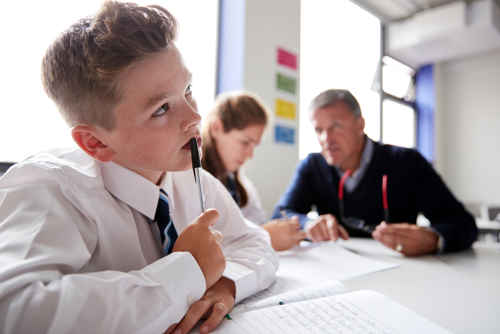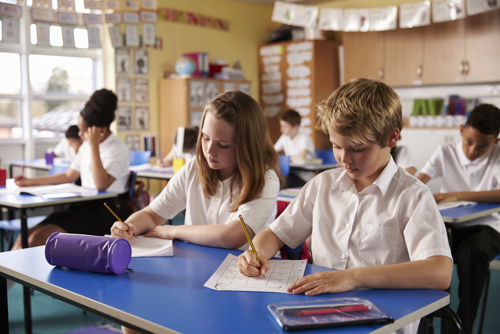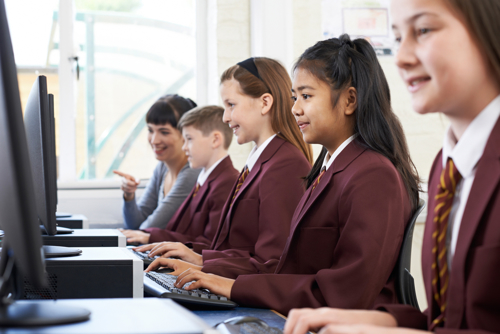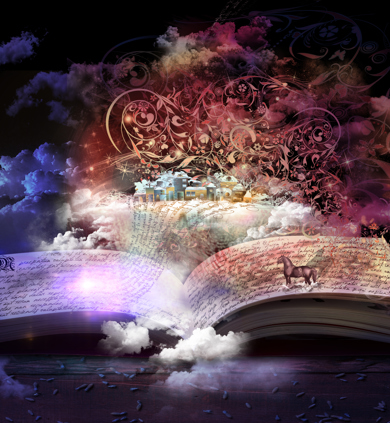 Access GCSEPod
Access GCSEPod
Key Stage 3 History resources
Looking for Key Stage 3 History resources designed to ignite students' curiosity about the past and engage them in a diverse and balanced exploration of history? Look no further.
Our interactive content keeps students motivated and excited about history. We encourage them to embrace the complexity of the past, think critically about historical events, and appreciate the value of diversity in shaping the world. Access KS3's History resources are your trusted partner in nurturing historically informed, empathetic, and critical-thinking students ready to explore the world through a historical lens.

Why choose our KS3 History resources?
Help your students on their journey to GCSE success with our KS3 History resources
Key features of our Key Stage 3 History resources
What's in Access Key Stage 3 History curriculum?
Year 7
7.1 The Norman conquest
- How dark were the Dark Ages?
- Why was Edgar the Athelings beaten to the throne?
- The Battle of Hastings: Did William win or did Harald lose?
- How useful is the Bayeux tapestry?
- Why is Hereward the Wake one of history’s ‘greatest Englishmen?’
- Why did William build motte and bailey castles?
- What was the Harrying of the North?
- Why was the creation of the Domesday Book so important for William?
- How did the Feudal System help the Normans rule England?
- To what extent did everyday life change as a result of the Normans?
- William Rufus - manslaughter or murder?
- How far did the Norman Conquest really change England?
7.2 Life in medieval England
- What was it like to live in a medieval village?
- Why did people flock to towns in Medieval England?
- How far was entertainment for the poor very different from the rich?
- Why did men and women become monks and nuns?
- What role did the Church play in medieval life?
- Who was responsible for the death of Thomas Becket?
- To what extent was King John a bad ruler?
- What was, and still is, the importance of the Magna Carta?
- What was the impact of the Black Death?
- Why did the Peasants revolt in 1381?
- How useful is the Bodleian Bowl when learning about the lives of Jewish people in Medieval England?
- How and why were medieval monarchs so powerful?
7.3 Renaissance and reformation
- Why did Africans migrate to Tudor England and what do we know about their lives?
- Who was Martin Luther and why was he so important?
- Why did Henry VIII break from Rome?
- How and why did Henry VIII order the dissolution of the monasteries?
- What was the impact of the Break from Rome?
- Why did Henry VIII have so many wives?
- How bloody was Bloody Mary?
- How effectively did Elizabeth solve the religious problems she faced?
- Why did Elizabeth chose to not marry?
- How and why did Elizabeth use portraits as propaganda?
- How did Elizabeth secure the defeat of the Spanish Armada?
- Why is Elizabeth I considered one of England’s greatest ever rulers?
Year 8
8.1 Tudor England and Stuart Britain
- To what extent was James I the ‘wisest fool in Christendom’?
- What was and what was the impact of the Gunpowder Plot?
- Why did the English Civil War break out?
- Why did Parliament win the Civil War?
- Why did the people kill their King?
- What was the restoration and why did it occur?
- Why is Cromwell so unpopular in Ireland?
- What was considered witchcraft in early modern England?
- Who was the Witchfinder General and what was his impact?
- What was so glorious about the Glorious Revolution?
- What was the significance of the 1707 Act of Union?
- How united was Great Britain in the years 1603 to 1750?
8.2 Industrial Britain
- What was the Industrial Revolution?
- Why did Britain have an Industrial Revolution before other countries?
- How did towns and cities change during the Industrial Revolution?
- What was the impact of the Industrial Revolution on the countryside?
- What was it like to work in an industrial mill?
- What were working conditions like for children?
- Why was Edwin Chadwick so important for public health?
- How did the Poor Law Amendment Act affect poor people?
- Why was there so much demand for political change in the 1800s?
- Did Britain become democratic in the 1800s?
- How did the government improve the living and working conditions of people in Britain?
- Did life get better or worse for workers in the nineteenth century?
8.3 Britain and the First World War
- How did one bullet start the First World War?
- Why was there a stalemate on the Western Front?
- Were lions led by donkeys?
- How significant was the role of the Empire’s soldiers in the First World War?
- What was the impact of new technology on warfare?
- What was life like on the Home Front during the First World War?
- How and why did the British government use propaganda during the First World War?
- To what extent was the Treaty of Versailles fair?
- Who would you join - the suffragists or suffragettes?
- How and why did women win the right to vote?
- What was the impact of the 1918 Representation of the People Act?
- What was the experience and impact of the First World War for women?
Year 9
9.1 Britain and Europe since 1919
- How and why did Hitler become the leader of Germany?
- What was life like in Nazi Germany?
- When, how and why did the Second World War start?
- To what extent was appeasement a mistake?
- What was life like on the Home Front in Britain?
- To what extent was the British bombing of Dresden justified?
- What was the Holocaust?
- How did the Holocaust happen?
- Never again?
- Cradle to grave: to what extent did WWII lead to the creation of the welfare state?
- How important has Britain been in the world since the Second World War?
- How far has life changed for people in Britain between 1945 and the present day?
9.2 Civil rights in the USA
- What was Africa like in 15th century?
- What was Britain’s role in the Trans-Atlantic Slave Trade?
- What was life like for enslaved people on the plantations?
- In what ways did people resist their enslavement?
- What role did Britain play in the abolition of slavery?
- What were the Jim Crow Laws and what was their purpose?
- Why did the Civil Rights Movement gain momentum after WW2?
- How significant was Martin Luther King?
- To what extent was the Black Power movement different from the Civil Rights Movement?
- Why was there a bus boycott in Bristol?
- Hidden figures - who were the women of the Civil Rights and Black Power Movements?
- Historical enquiry - What role did the British Empire play in the establishment and perpetuation of a global slave trade?
9.3 Thematic study: Migration and empire
- Who migrated to Britain before the 8th century and what was their impact?
- Who migrated to medieval Britain and what was their impact?
- Were immigrants welcomed into Britain in the 16th and 17th centuries?
- Why did Great Britain establish an overseas empire?
- How did Britain benefit from its empire in the 17th and 18th centuries?
- What is the legacy of the British Empire?
- How diverse was Britain in the 18th and 19th centuries?
- What was life like for immigrants in London in the nineteenth century?
- Why did the Windrush generation migrate to Great Britain?
- Why do people migrate to modern Britain?
- Why did countries declare their independence from British rule?
- To what extent has Britain changed as a result of migration?
01
dd









